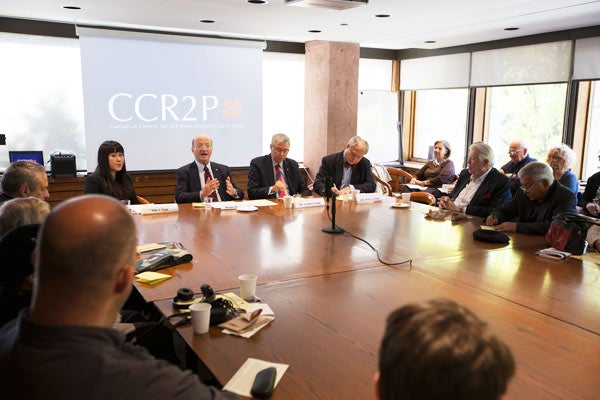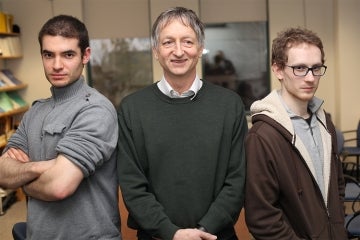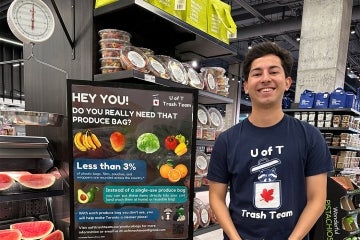
ISIS, refugees and resisting nostalgia: experts debate Canada’s foreign policy future at Munk School roundtable
Published: October 23, 2015
Three days after Canadians elected a new government, the Canadian Centre for the Responsibility to Protect, the Munk School of Global Affairs and the Canadian studies program at University College hosted a roundtable discussion on the future direction of Canadian foreign policy.
Among the participants were Massey College Master Hugh Segal, and Munk School of Global Affairs Director Stephen Toope.
They engaged in a lively and wide-ranging debate on a number of foreign policy topics.
Strengthening international partnerships is one of the goals President Meric Gertler described in the recently released Three Priorities: A Discussion Paper.
Read more about the Three Priorities
Toope We should really resist nostalgia. I think we have to be realistic about the kind of role we can play. There’s a view in Canada that somehow we’re going to recapture a role I think we never actually played. And furthermore, even if we did, we’re not in the same power position as we were in the immediate aftermath of the Second World War. Yes, we were very active participants then, but our role now has to be different because there are many more players who are every bit as important as we are. I’m not talking about Russia or China; I’m talking about Korea and Mexico and South Africa. We have to build alliances with like-minded states around certain types of activities.
We can’t be thinking purely in terms of how many refugees Canada is going to accept: 25,000, 50,000 – it’s nothing compared to the 60 million people outside their borders now. We’ve got to think about what’s happening with refugee camps, we’ve got to figure out how to support the government of Jordan, we’ve got to figure out how Turkey is going to survive, these are big questions and I think we have a role to play.
I’m kind of hopeful that he will let the present mandate lapse because other things can happen between now and March that could be constructive. If he actually increases Canadian boots on the ground in terms of trainers and special forces to work with Iraqis and Kurds, and maybe some equipment support, I think most Canadians would say we’re doing our share against the forces of ISIS.
Toope I agree. The prime minister should deliver on a promise that was so clearly stated. There are hundreds of thousands, millions of people suffering here. My own view would be that six fighter jets is probably not the best way for Canada to engage. I would push for a deeper commitment and I think one way is by creating humanitarian corridors to allow people to escape from the control of what is an appalling set of people.
 (Hugh Segal and Tina Park, Director of the Canadian Centre for the Responsibility to Protect; photo by Johnny Guatto)
(Hugh Segal and Tina Park, Director of the Canadian Centre for the Responsibility to Protect; photo by Johnny Guatto) Segal The one substantive change that we should give serious thought to is to re-open our relationships with Tehran. It does not mean we are approving of any of their internal or foreign policies. It merely means that we should have a window open to them. You can’t do good work in the Middle East, with the Israelis, with the Sunni countries, with the Gulf State allies if you do not have a relationship in Iran.
Toope Another area where R2P should be brought into play is in the whole area of global health where Canada has extraordinary resources. If you look in this city alone, we have probably the second-largest cluster of people in global health in North America after Boston and we’re nowhere on the international horizon in global health.
A full transcript of the roundtable discussion will be posted at the Canadian Centre for the Responsibility to Protect website at www.ccr2p.org



